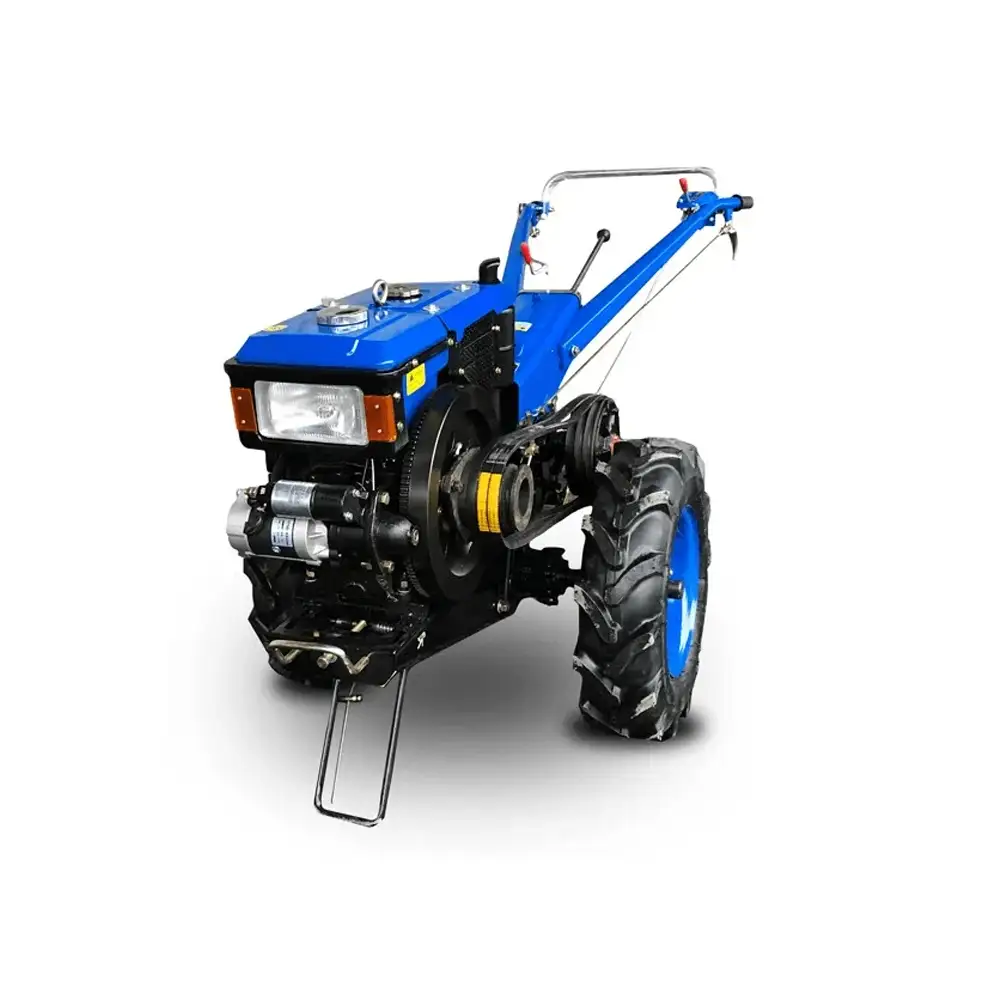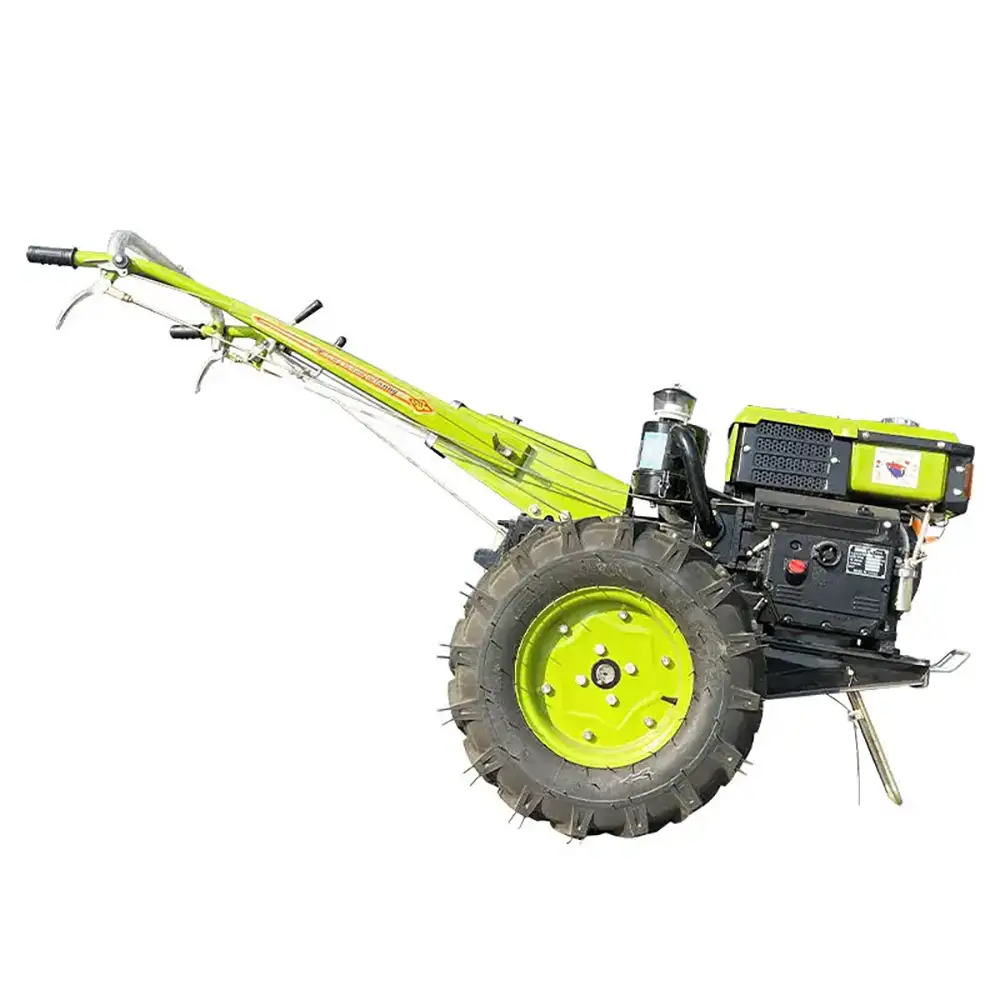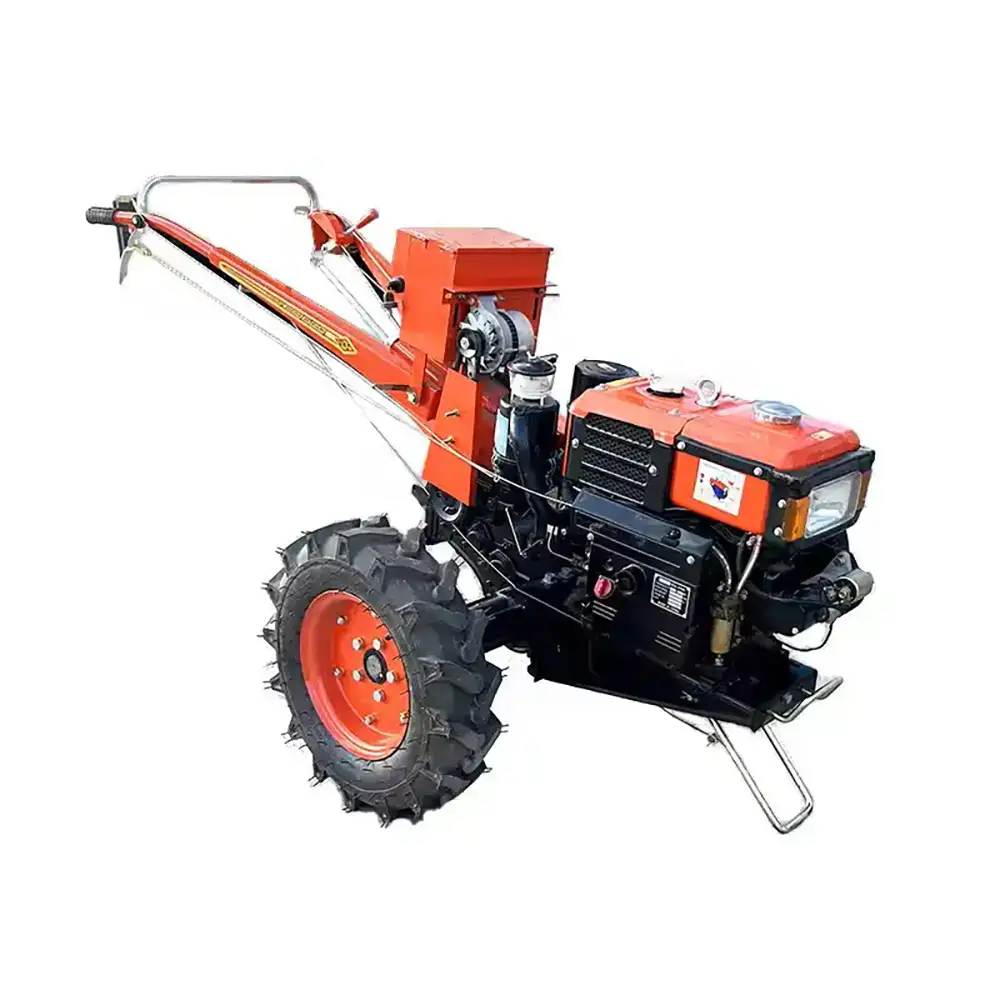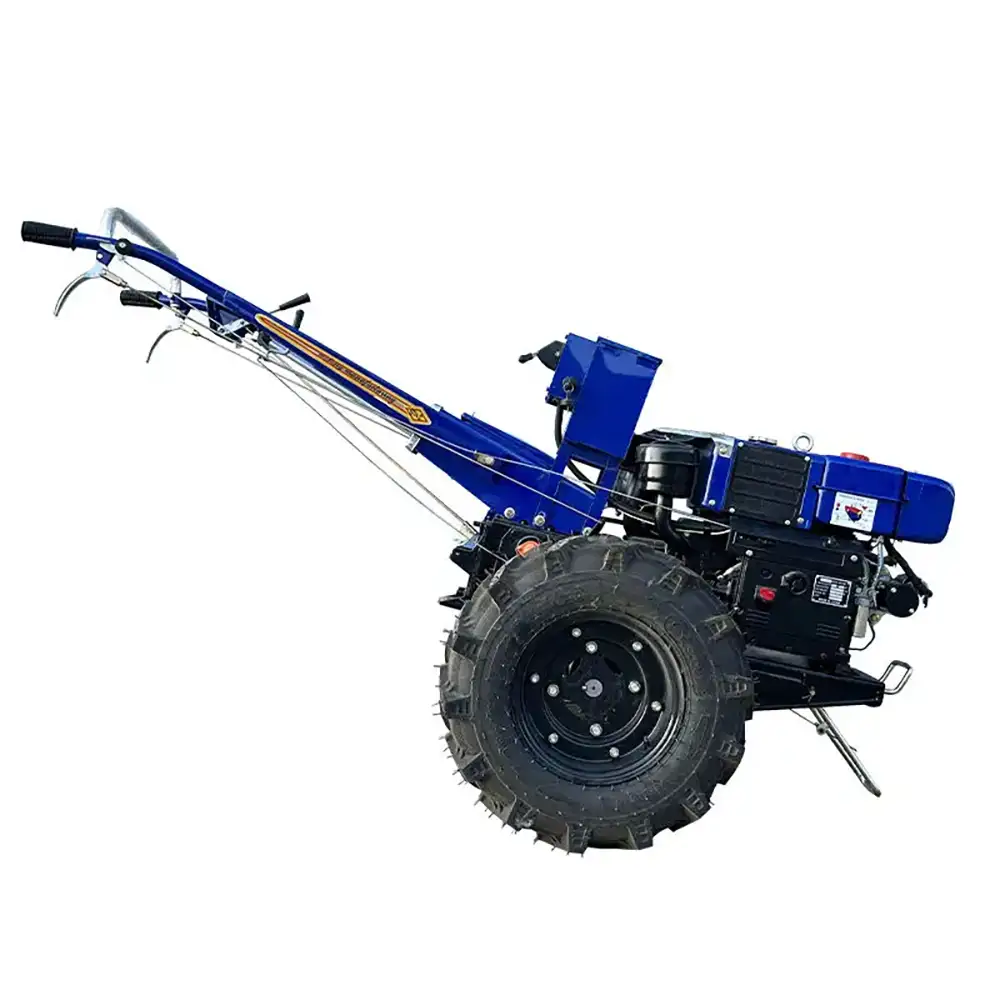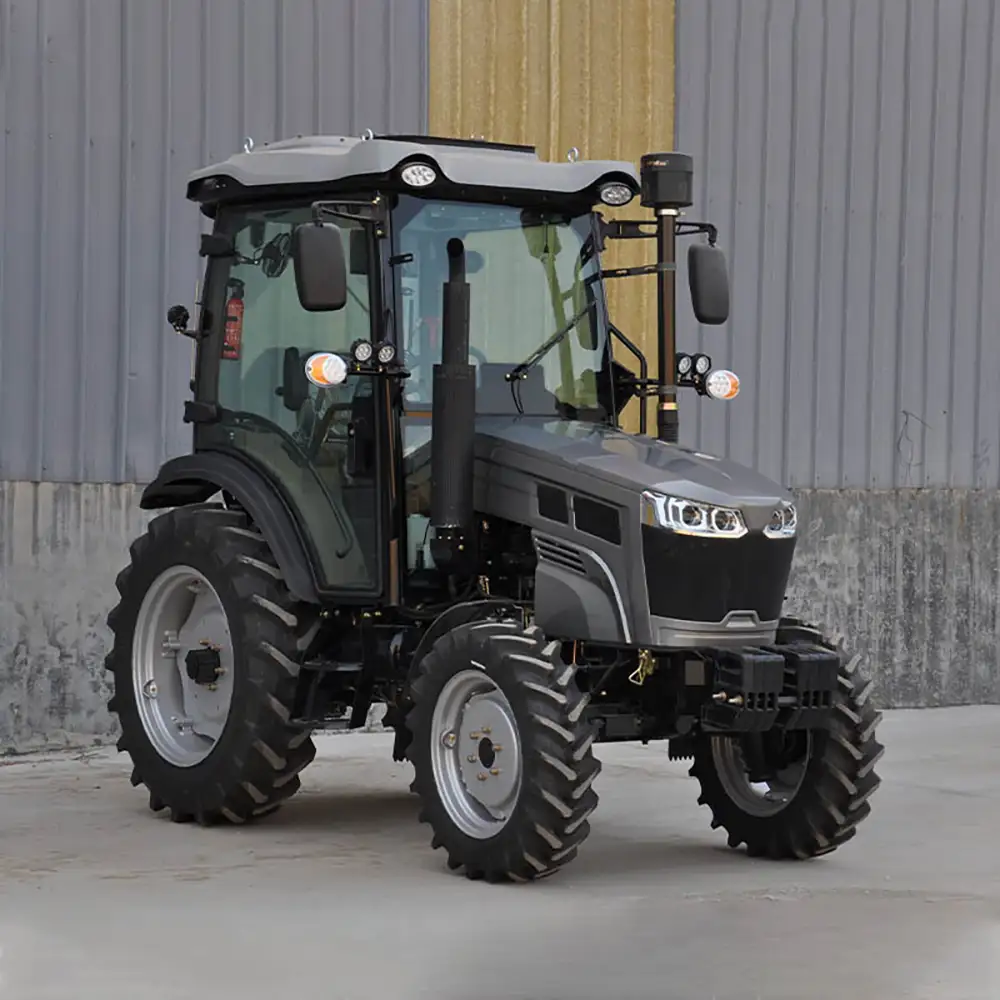As a professional manufacturer and supplier of complete sets of convenient agricultural machinery, Our Factory Located in Weifang City, knowned as "Power City of China", devoted to research, design, manufacture, promotion, and after-service.nearby Qingdao port; its transportation is very convenient.
-
Tractor Series
-
Farm Tractor
 Farm Tractor
Farm TractorFarm Tractors for Sale, Agricultural Farm Tractor Manufacturer, Supplier, Trader, Distributor, Dealer, Farm Tractors Retail and Wholesale, Customized Service
More >> -
Walking Tractor
 Walking Tractor
Walking TractorWalking Tractor for Sale with Factory Price, Walking Tractors Manufacturer, Supplier, Trader, Distributor, Dealer, Walk-behind Tractor Retail and Wholesale, Customized Service
More >> -
Compact Tractor
 Compact Tractor
Compact TractorCompact tractors are small agricultural tractors, designed for homeowners or small farms. Their compact size makes them better suited for small acreages and are easier to maneuver in small and narrow spaces.
More >> -
Utility Tractor
 Compact Tractor
Compact TractorUtility tractors are general purpose vehicles with multiple functions. They support a variety of agricultural tasks and landscaping activities, like mowing grass, digging trenches, and transporting piles of dirt or gravel, and support several power take-off attachments, like plows and tillers. Generally, utility tractors fall into the horsepower range of 40 to 100+. Though these vehicles are powerful and versatile, they’re also compact, making them easy to maneuver.
More >> -
Crawler Tractor
 Compact Tractor
Compact TractorCompact tractors are built to help you do more with less hassle. From mowing and hauling to landscaping and light fieldwork, these nimble, easy-to-use machines give you the right power, comfort and control to achieve your goals
More >> -
Euro V Tractor
 Compact Tractor
Compact TractorEuro V tractors utilize advanced engine technologies, such as direct injection and turbocharging, to optimize fuel consumption. By burning less fuel, Euro V tractors reduce operational costs and minimize carbon emissions, promoting a greener and more sustainable agriculture industry
More >>
-
Farm Tractor
-
Garden Equipment
-
Robot Lawn Mower
 Robot Lawn Mower
Robot Lawn MowerCompared to traditional walk-behind or ride-on mowers, intelligent lawn mowing robots are better suited for small, neatly manicured lawns, making them a popular choice in developed countries. Over the past few years, lawn care has been evolving toward smart robotic solutions..
More >> -
Wood Chipper
 Wood Chipper
Wood ChipperThe mechanical auto-feed wood chipper is a robust self-feeding PTO driven wood chipper attachment that mounts to the 3 point hitch of your tractor. This PTO wood chipper is compact, yet built to withstand rigorous use. Dual in-feed rollers grab and pull material into the chipper head using a sturdy belt driven gear box and drive axle system. High quality (A8 tool steel) made in China chipper knives are standard equipment on all WCM, WCH and JM wood chippers. Check out these features. The chippers are so unique and innovate that they are now patent pending. Attempts have been made to copy this machine.
More >> -
Log Splitter
 Log Splitter
Log SplitterThe wood splitter is suitable for small household wood splitting, with a simple design and durable leather. The key parts are designed with safety, which makes the use more humane and safer while ensuring the performance of the equipment. Suitable for small household firewood, simple design, durable leather...
More >>
-
Robot Lawn Mower
-
Farm Machinery
-
Planting & Seeding Equipment
 Planting & Seeding Equipment
Planting & Seeding EquipmentModern Agriculture Essential Equipment Automatic Cutting Sowing Machine Improves Planting Efficiency Seeders & Transplanters.
More >> -
Harvesting Equipment
 Harvesting Equipment
Harvesting EquipmentWidely used in harvest and bind low stem crops such as wheat, rice,barley, oats etc. and can be suitable in different fields even hills .It can cut and harvest the plants, meanwhile, it can bind them together automatically. It contributes to the farmers.
More >> -
Hay & Forage Equipment
 Hay & Forage Equipment
Hay & Forage EquipmentHay and forage solutions range from mowers and balers to forage blowers, all with innovations in size, capacity and efficiency,Perfectly compressed crop material means more material per bale, less time spent in the field and during transport. AGCO offers solutions for optimal baling results for silage, hay and straw.
More >> -
Snow Removal Equipment
 Snow Removal Equipment
Snow Removal EquipmentLand sorting, Garden, Snow removal, Mining, Landscaping, Construction, Dairy industry,Farm, Livestock farm , Waste(animal waste, municipal solid waste, life garbage) removal, ditching, truck loading ,tree planting and so on!
More >>
-
Planting & Seeding Equipment
-
Construction Machinery
-
Wheel Loader
 Wheel Loader
Wheel LoaderExplore more wheel loader resources Lifetime Frame & Structure Warranty You demand durable, high-quality wheel loaders that can withstand the most extreme jobsite conditions.
More >> -
Excavator
 Excavator
ExcavatorEquipped with a new Cummins EFI engine for strong performance and fuel efficiency, this 15-ton crawler excavator features an inline hydraulic system for smooth operation and precise control. It includes an advanced control system optimizing hydraulic power, an 8-inch color anti-glare monitor, and a safe cab design with automatic air conditioning. The operating weight is 15 tons, powered by a Cummins engine with a rated power of 86 kW/2200 rpm.
More >> -
Site Dumper
 Site Dumper
Site Dumper4WD mini dumper is designed for construction and mining sites, featuring a robust diesel engine with 24HP power, a hydraulic tipping hopper, and a fully hydraulic system. With a payload capacity of 1000KG and bucket capacity of 0.75cbm, it ensures efficient performance. The dumper includes CE certification, ensuring compliance with EU safety standards, which provides market access across Europe.
More >> -
Skid Steer Loader
 Skid Steer Loader
Skid Steer LoaderThis mini skid steer loader features a closed hydraulic system and an imported diesel engine, ensuring high performance for demanding tasks. With CE certification, it complies with EU safety standards, providing market access assurance. The product is backed by a 2-year warranty and offers customization options for OEM and ODM services.Advanced New Design CE/EPA Certified Mini Skid Steer Loader with Import Diesel Engine - Optimal for High Hydraulic Flow Tasks.
More >> -
Concrete Mixer Truck
 Concrete Mixer Truck
Concrete Mixer TruckThis small crawler concrete mixer truck features a crawler-type running mechanism for stable operation on complex surfaces, a professional mixing mechanism ensuring uniform mixing, and integrated mixing and transport functions to reduce labor costs and improve efficiency. Its user-friendly control system, high mixing speed, and easy maintenance further enhance its value.
More >> -
Forklift
 Forklift
Forklifthis diesel forklift offers a customizable load capacity of 1-6 tons and a working height of 3-6 meters, suitable for various outdoor applications. It features a two-thirds stage fully free mast, Mitsubishi/Isuzu engine, and multiple tire options including non-marking, pneumatic, and polyurethane tires. The forklift is adaptable to rough terrains and supports customization of color and logo for free. With a focus on performance and reliability, it suits industries like construction, manufacturing, and food & beverage shops.
More >>
-
Wheel Loader
- Attachments & Implements
- Mowers
- Parts & Accessories


